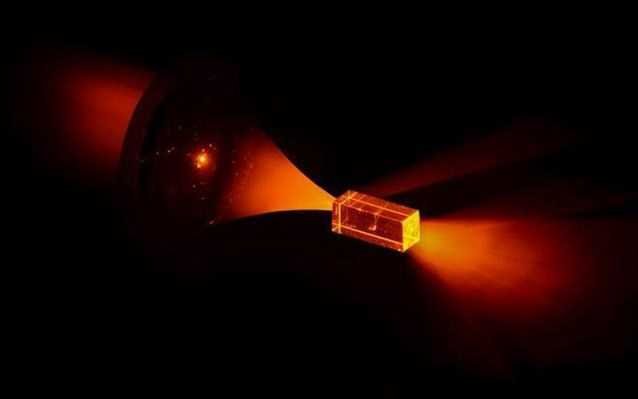Physicists developing a prototype quantum hard drive have taken a significant step in that direction, improving storage time by about 100 times.

Το ρεκόρ της ομάδας του Australian National University (ANU) και του University of Otago ανέρχεται στις έξι ώρες και αποτελεί ένα πολύ σημαντικό βήμα προς την κατεύθυνση της creationof a global secure encryption network based on quantum information that could be used for banking and personal email.
"We believe that soon it will be possible to share quantum information between any two points in the world," said lead author Manjin Zhong of the Research School of Physics and Engineering (RSPE).
"Quantum states are very fragile and normally collapse in milliseconds. "Our long storage times have the potential to revolutionize the transmission of quantum information."
Quantum information promises arresting encryption because quantum particles, such as photons, can be created in a way that connects them inherently. Interactions with one affect the other, as far as they are.
Researchers at the two universities have stored quantum information on European atoms embedded in crystal. This steady state is a promising alternative to the use of laser beams in fiber optics - an approach that is currently used to create quantum networks of approximately 100 kilometers.
"Our storage times are now so long that it means rethinking what is the best way to distribute quantum dataZhong noted. "Even by transporting our crystals at walking speeds we have less loss than laser systems at a distance."
"We can now imagine storing light in separate crystals and then moving them to different points in the network, thousands of kilometers apart. So we think of our crystals as portable quantum entanglement optical discs. "
After recording a quantum state in Europe's nuclear spin using laser light, the team subjected the crystal to a combination of fixed and oscillating magnetic fields to conserve fragile quantum information.
"Both fields isolate the spins of Europe and prevent quantum information from leaking," he said. Jevon Longtell of the University of Otago.
The research was published in Nature.
Source: naftemporiki.gr





